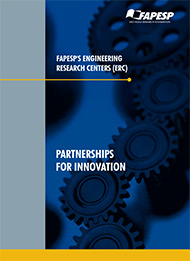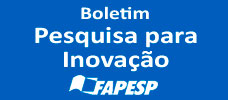Center of Excellence in New Target Discovery (CENTD)

Center of Excellence in New Target Discovery (CENTD)
Goal: Rational approach for searching molecular targets involved in inflammatory events and cell survival
Coordinator: Ana Marisa Chudzinski-Tavassi
Host Institution: Butatan Institute / São Paulo State Secretariat of health
Business partner: GlaxoSmithKline Brasil Ltda (GSK)
https://centd.butantan.gov.br/us/
+55 11 2627-3727
centd@butantan.gov.br
FAPESP Process 2015/50040-4
Phase 1
Term: Dec 2015 to nov 2023
FAPESP Process 2020/13139-0
Phase 2
Term: Oct 2021 to Sep 2026
CENTD is the result of a public-private partnership (PPP) between the Butantan Institute, FAPESP and GlaxoSmithKline (GSK). The team works to identify and validate molecular targets involved in inflammatory diseases with the aim of developing new drugs, using venoms, animal secretions, as well as natural and synthetic molecules as study tools.
The first phase of the project (2015-2020) focused on identifying new therapeutic targets. The second phase (2021-2026) aims to validate the previously selected molecular targets.
CENTD's laboratory, hosted by Butantan Institute, houses specialized technologies that enable it to work in a dynamic and collaborative way. It has high-performance platforms for bioinformatics, proteomics and chemoproteomics, microscopy, imaging flow cytometry, molecular biology, and molecular target validation. Furthermore, different cellular models are developed in the laboratory for the analysis and identification of molecular targets.
Since it was launched in 2015, CENTD published of scientific papers in reputable journals, generated patents (filed both in Brazil and abroad) and carried out scientific dissemination, innovation and entrepreneurship activities aimed at society in general. Among these initiatives are the training of managers for areas of innovation and technology transfer, and the training of researchers, undergraduates and postgraduates for scientific entrepreneurship (transformation of scientific research into new health businesses).
RESEARCH AREAS
-
Poisons, toxins and cytoprotective molecules as tools for searching for new molecular targets;
-
Biobank and screening of poisons, toxins and peptides: searching for new anti-inflammatory, analgesic and tissue regenerative compounds;
-
Inflammatory and anti-inflammatory effects of animal poisons and bioactive molecules in models of tissue remodeling, cell survival and
-
degenerative diseases;
-
Validating molecular targets for drug discovery.
RESEARCH HIGHLIGHTS
Protein derived from tick saliva proves effective in the treatment of equine skin cancer
Experiments were conducted by scientists affiliated with the Center of Excellence in new Target Discovery, a research center supported by FAPESP, involving five animals with spontaneous skin tumors.
Venoms are source in the search for new medicine
The study of natural toxins and their derivatives may help in the development of medicines to treat diseases like cancer and osteoarthritis.
Among venoms, not just from snakes. Researchers investigate the action and possible uses of toxins
Scientists identified in human cell cultures the action mechanism of the venoms of the Brazilian caterpillar Premolis semirufa, which lives in the trunks of rubber trees, particularly in the Amazon. Contact with the bristles of the caterpillar causes severe inflammation and loss of hand movement, called pararamosis. The venom contains toxins that induce a clinical condition similar to that of osteoarthritis
BV-FAPESP:
https://bv.fapesp.br/en/auxilios/108386/ (phase2)
https://bv.fapesp.br/en/auxilios/91369/ (phase 1)



